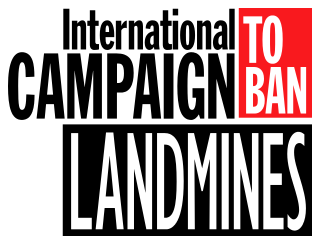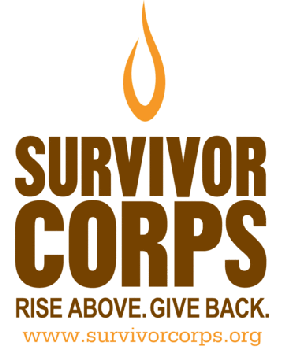Related Research Articles

A land mine, or landmine, is an explosive weapon concealed under or camouflaged on the ground, and designed to destroy or disable enemy targets, ranging from combatants to vehicles and tanks, as they pass over or near it.

The International Campaign to Ban Landmines (ICBL) is a coalition of non-governmental organizations whose stated objective is a world free of anti-personnel mines and cluster munitions, where mine and cluster munitions survivors see their rights respected and can lead fulfilling lives.

Patrick Joseph Leahy is an American politician and attorney who represented Vermont in the United States Senate from 1975 to 2023, and also served as the president pro tempore of the United States Senate from 2012 to 2015 and from 2021 to 2023. A member of the Democratic Party, he chaired the Senate Appropriations Committee, the Senate Judiciary Committee and the Senate Agriculture Committee at various points during his 48-year tenure. Leahy is the third-longest-serving U.S. senator in history, and is the longest-serving member of the United States Congress to solely serve as a U.S. senator.

The HALO Trust is a humanitarian non-government organisation which primarily works to clear landmines and other explosive devices left behind by conflicts. With over 10,000 staff worldwide, HALO has operations in 28 countries. Its largest operation is in Afghanistan, where the organization continues to operate under the Taliban regime that took power in August 2021.

The Convention on the Prohibition of the Use, Stockpiling, Production and Transfer of Anti-Personnel Mines and on their Destruction of 1997, known informally as the Ottawa Treaty, the Anti-Personnel Mine Ban Convention, or often simply the Mine Ban Treaty, aims at eliminating anti-personnel landmines (APLs) around the world.

The Manitoba Campaign to Ban Landmines (MBCBL) was Canada's only provincial campaign to ban landmines. It was a registered non-profit organization in the province of Manitoba. The MBCBL was a member of the 1997 Nobel Peace Prize co-laureate International Campaign to Ban Landmines (ICBL), Mines Action Canada, and the Cluster Munition Coalition.
Adopt-A-Minefield is a United Kingdom-based charity which raises awareness about landmines and their associated problems, and raises funds to clear minefields and help survivors of landmine accidents. It has raised over US$17 million since it was established in the 1990s, enabling it to clear minefields in 126 villages in Afghanistan, Angola, Bosnia-Herzegovina, Cambodia, Croatia, Iraq, Laos, Mozambique and Vietnam.

Survivor Corps, formerly known as the Landmine Survivors Network, was a global network of survivors helping survivors to recover from war, rebuild their communities, and break cycles of violence. The organization currently operated programs in Albania, Armenia, Azerbaijan, Bosnia-Herzegovina, Burundi, Colombia, Croatia, El Salvador, Ethiopia, Georgia, Jordan, Kosovo, Macedonia, Montenegro, Serbia, Uganda, Rwanda, the United States and Vietnam.

Demining or mine clearance is the process of removing land mines from an area. In military operations, the object is to rapidly clear a path through a minefield, and this is often done with devices such as mine plows and blast waves. By contrast, the goal of humanitarian demining is to remove all of the landmines to a given depth and make the land safe for human use. Specially trained dogs are also used to narrow down the search and verify that an area is cleared. Mechanical devices such as flails and excavators are sometimes used to clear mines.
A mine clearance organization, or demining organization, is an organization involved in the removal of landmines and unexploded ordnance (UXO) for military, humanitarian, or commercial reasons. Demining includes mine clearance, as well as surveying, mapping and marking of hazardous areas.

The region of Nagorno-Karabakh and areas around it are considered to be some of the most heavily mined regions of the former Soviet Union. Mines were laid from early 1990s by both Azerbaijani and Armenian forces during and after the First Nagorno-Karabakh War. The worst-affected areas are along the fortified former contact line between Azerbaijani and Armenian forces, in particular in the districts of Aghdam, Fuzuli and Jabrayil. According to military experts from both Azerbaijan and Armenia, the ground in those areas is covered with "carpets of land mines." The region has the highest per capita rate in the world of accidents due to unexploded ordnance.

Kenneth R. Rutherford is co-founder of the Landmine Survivors Network and an American researcher in the field of political science.
Mine action is a combination of humanitarian aid and development studies that aims to remove landmines and reduce the social, economic and environmental impact of them and the explosive remnants of war (ERW).

The 2010 United States Senate election in Vermont took place on November 2, 2010 alongside other elections to the United States Senate in other states as well as elections to the United States House of Representatives and various state and local elections. Incumbent Democratic U.S. Senator Patrick Leahy was re-elected to a seventh term.

The United Nations Mine Action Service (UNMAS) is a service located within the United Nations Department of Peacekeeping Operations that specializes in coordinating and implementing activities to limit the threat posed by mines, explosive remnants of war and improvised explosive devices.

Buffalo 461 was a Canadian military de Havilland Canada DHC-5 Buffalo assigned to the second United Nations Emergency Force force in Syria in support of United Nations Security Council Resolution 340. Assigned to a peacekeeping force, Buffalo 461 was shot down by three Syrian missiles on August 9, 1974 killing all nine passengers and crew.

Peacekeeper Park is an urban park in Calgary, Alberta. The park is located in the neighbourhood of North Glenmore, on the former grounds of Canadian Forces Base Calgary. The park includes a memorial wall with the names of Canadian Forces members who have given their lives on peacekeeping and peace support missions with the United Nations, NATO and other organizations since the end of the Second World War, including the current mission in Afghanistan.

Batman: Death of Innocents: the Horror of Landmines is a "landmine awareness" and "humanitarian comic book" published by DC Comics in 1996. The graphic novel was authored by Dennis O'Neil, Joe Staton, Bill Sienkiewicz, and Ian Laughlin. O'Neill wrote the story, Staton was the penciller, Sienkiewicz was the inker, and Laughlin was the colorist. The purpose for publishing this particular Batman comic book was to teach the people of the United States regarding the dangers and consequences of landmines worldwide, left active in countries that had been at war. The publication of this Batman comic book title was influenced by two other similarly themed comic books featuring Superman and Wonder Woman, namely Superman: Deadly Legacy and Superman and Wonder Woman - the Hidden Killer.
Landmines in Israel have been a problem since the 1950s and 1960s. Campaigns to clear the landmines, led by a coalition of civil-society organizations, mine-affected communities and land mine survivors, operated from 2009 to 2011, until the Knesset passed the Minefield Clearance Act. According to this law, the Israel Mine Action Authority was established and began clearing minefields in 2012.
The Leahy War Victims Fund donates prosthetic devices and other rehabilitation services to over 250,000 people with disabilities in 40 countries through the US Agency for International Development.
References
- ↑ "Canadian Landmine Foundation - about". Archived from the original on 2008-09-29. Retrieved 2008-09-12.
- ↑ Jordanian Embassy to the United States Archived 2007-08-15 at the Wayback Machine , quoting the Jordan Times of 5 December 1999
- ↑ Kreger, N Profile: The Canadian Landmine Foundation, Journal of Mine Action , Issue 7.2, August 2003
- ↑ McSheffrey M Elliot Lake celebrates first National Peacekeepers' Day, The Standard
- ↑ Press release Premier's message regarding Peacekeepers Day campaign Office of the Premier/Communications New Brunswick, 2 August 2006
- ↑ "Canadian Landmine Foundation - board". Archived from the original on 2008-08-28. Retrieved 2008-09-12.
- ↑ "Adopt-A-Minefield". Archived from the original on 2008-05-16. Retrieved 2008-09-12.